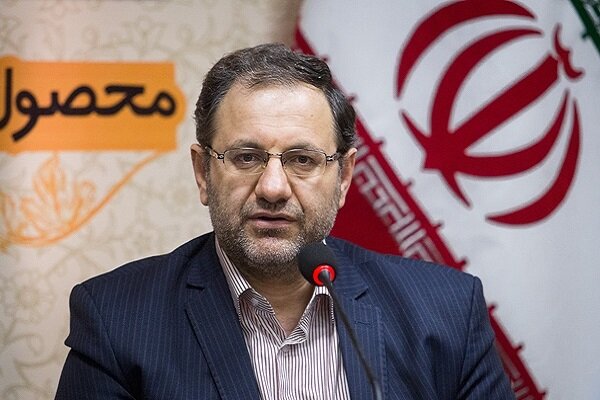FM to name commercial attachés to enhance economic diplomacy

TEHRAN — The spokesman for the presiding board of the Iranian Parliament announced on Sunday that Foreign Minister Hossein Amir Abdollahian will soon appoint 35 commercial attachés in line with efforts to promote economic diplomacy.
"Soon 35 Commercial attachés will be appointed by the foreign minister and all efforts are made to form active economic diplomacy," Seyyed Nezam Mousavi told reporters after a closed session of the parliament with the foreign minister in which a range of other issues were raised.
Pointing to the foreign minister's explanations regarding the measures taken to strengthen economic diplomacy, Mousavi said, “Using the capacity of diplomacy to pursue economic issues has been one of our most important demands."
Mousavi went on to say that the foreign minister explained the steps taken to activate economic diplomacy with neighboring countries, especially in Asia as well as Africa and Latin America.
The MP also pointed to other issues discussed at the closed session with Abdollahian.
"In recent months and weeks, in the region of West Asia, and especially in the neighborhood of Iran, many developments and events have taken place that are important both from the point of view of the people and from foreign policy's perspective," Fars quoted the MP as saying.
Therefore, he said, the foreign minister was invited to present to the closed session of the parliament to present a general analysis of the developments that have taken place and the actions of the diplomatic apparatus in the face of these developments.
The MP added, "We witnessed parliamentary elections in Iraq, which will naturally elect a new government; and in Afghanistan we also saw a change of government."
What model to pursue in the nuclear talks requires analyzing strengths and weaknesses of previous models and choosing a model that serves interests
The United States and the Zionist regime have also been pursuing movements in the region based on their strategic plans, the parliamentarian said.
"On the other hand, a series of developments took place in the northwestern region of the country, which became a kind of threat to Iran's borders. In all these cases, the representatives raised questions and the Minister of Foreign Affairs Amir Abdollahian gave detailed explanations."
Mousavi was openly referring to the problems created by the Republic of Azerbaijan for Iranian trucks transporting goods to Armenia and accusations made against Iran by Azeri President Ilham Aliyev.
Mousavi said Iran witnessed formation of an implicit threat to its borders, which the Foreign Minister presented a comprehensive and strategic analysis in this regard.
Regarding the measures of the Ministry of Foreign Affairs in response to these developments, detailed explanations were provided and finally it was decided that the parliament in general and the National Security Committee and the Foreign Policy Committee in particular to follow the developments more closely and the foreign ministry submit a report in this regard so that the parliament takes necessary measures, Mousavi reiterated.
The MP from the Tehran constituency added: "With the coordination of the administration and other bodies, measures will be taken that serve our national interests. What is important is that the Islamic Republic of Iran and the diplomatic apparatus closely monitor the issues in the region and have full control over the developments of the enemy, especially the Zionist regime."
Iran has been advising the Republic of Azerbaijan that it favors close ties with Baku and warned it not to be trapped by Israel which is seeking to undermine ties between Iran and the Republic of Azerbaijan.
“Iran's defensive positions are quite clear and we will not allow our enemies to harm the interests of the Islamic Republic in the face of these developments,” the MP stated, adding the approach of Iran to the developments in the region is to create stability and security.
"We believe that the people and governments of the region themselves must manage their issues and that foreign powers have no right to intervene. The Islamic Republic of Iran is actively pursuing its diplomacy."
The parliamentarian went on to say, "We have witnessed some issues between the Republic of Azerbaijan and the Republic of Armenia, and certainly instability and insecurity in these countries and the conflict between them will have consequences for Iran."
During this period, some baseless rhetoric and remarks raised by the leaders and the Republic of Azerbaijan against the Islamic Republic, which were answered both politically and in the form of military exercises, the MP stated.
The Iranian military held military exercises in northwest to send the message that it is determined to protect its interests.
Iran's intention vis-a-vis its neighbors is interaction, Mousavi highlighted, but the fact that foreign powers, especially the Zionist regime, want to intervene and pursue a project around Iran is not acceptable, and the necessary response will be given through both the diplomatic channel and the armed forces.
The parliamentarian also said issues related to the 2015 nuclear deal were discussed with the chief diplomat, stressing, "The nuclear issue is very important for both the public opinion and the representatives. In this meeting, there were discussions about what our approach will be in the future."
The parliamentarians’ meeting with the foreign minister took place as Iran is analyzing approaches how to resume the stalled Vienna talks for a possible revival of the nuclear agreement.
Regarding the nuclear issue, Iran has followed different models to date, Mousavi said.
In a period, Tehran negotiated with only three European countries as intermediary and later in the form of the P5+1 negotiations, which led to the Joint Comprehensive Plan of Action (JCPOA), Mousavi stated.
What model to pursue in the negotiations now requires analyzing the strengths and weaknesses of previous models and choosing a model that serves Iran's interests, the MP underscored, noting certainly this model will be determined with the consultation between of the administration, the parliament, the Supreme National Security Council and all related departments.
